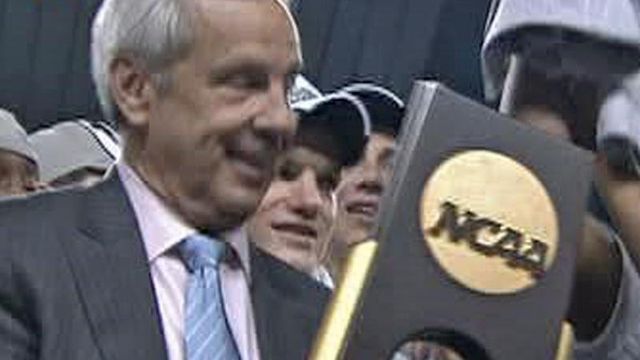Performance bonuses pad salaries of coaches in UNC system
It is no secret that high-profile coaches in the University of North Carolina system make high-dollar salaries. For many, the perks of coaching, including free vehicles, country club memberships, a percentage of ticket sales, endorsements and more, pad that paycheck even more.
Posted — UpdatedIt is no secret that high-profile coaches in the University of North Carolina system make high-dollar salaries. For many, the perks of coaching, including free vehicles, country club memberships, a percentage of ticket sales, endorsements and more, pad that paycheck even more.
Under the law, coaches’ contracts are public records, available upon request under the North Carolina Public Records Act. Although the coaches are employees of the state, their salaries are funded through student athletic fees, ticket revenues and booster money, not tax dollars from the General Fund.
A review of the contracts by WRAL News showed coaches and athletic directors who receive bonuses based on team performance, players' grades and other factors.
- Search all contracts for UNC System men's basketball coaches
The payments increase each year, from 2004 to 2015, and are in addition to any base salary and other bonuses. His first payment, in 2004, was $356,716. His final payment, in 2015, will be $1.5 million, according to his contract.
Williams, like many other coaches in the UNC system, also receives extra money based on his team's performance. When he cut down the nets at the NCAA Tournament in April, he earned an additional three months’ pay.
He gets a bonus worth one month's pay if his team is invited to the NCAA postseason tournament and another if the team makes it to the Elite Eight, and to the Final Four. He also earns a month’s pay if the team's graduation rate equals that of the undergraduate student body.
The coach also gets a $30,000 allowance for entertainment expenses and makes an undisclosed sum for any endorsements.
David Glenn, publisher of the ACC Sports Journal, sees performance incentives as a growing and logical trend to push college coaches chasing Williams' success.
Coaches at other system schools have similar performance clauses. Additional pay is common for postseason play and for getting student athletes to graduation.
Basketball coaches at Fayetteville State University must meet academic and athletic goals to earn bonus money. At Elizabeth City State University, men's basketball coach Shawn Walker is paid $75,000 annually for radio, television and speaking engagements. At North Carolina A&T, ECU and Western Carolina University, contracts provide for a car for the men's head basketball coach. Western Carolina's women's coach, Karen Middleton, also has the use of a car.
“There's pressure on me to be successful,” Lutz said.
“It didn't put the school in a bad position to give me a raise unless I met incentives that they were very comfortable doing.”
A former basketball coach, ECU Athletic Director Terry Holland argues that performance-based contracts are a valid way to justify high pay. He crafts creative contracts at ECU with that goal.
“The amounts have become so much greater, it's become more difficult to justify the salaries,” he said.
Mack McCarthy, ECU’s basketball coach, said performance-based incentives make sense.
“You probably ought to be paid according to how you do given your set of circumstances and challenges,” he said.
Holland hired McCarthy to take over ECU's men's basketball, a perennial losing team. “Mack is paid below market rate,” Holland said.
He sweetened McCarthy's $150,000 salary with unusual incentives to turn things around. McCarthy can earn an extra $100,000 if his team wins half its games. If the Pirates out-rebound opponents in 10 conference games, he grabs another $50,000.
When told about McCarthy’s contract, Lutz said, “I wish I'd talked to Mack before I signed my contract. That's pretty ingenious.”
Glenn said students and fans support contracts where coaches have "skin" in the game. “The non-sports fan has a hard time placing compensation within the reality and the economy that we live in,” Glenn said. “The sports fan wants his or her team to win.”
Ethan Eanes, a student at UNC-C, said he doesn’t mind Lutz making money for each ticket sold. “If he's selling more tickets, he should make the money,” Eanes said.
• Credits
Copyright 2024 by Capitol Broadcasting Company. All rights reserved. This material may not be published, broadcast, rewritten or redistributed.




